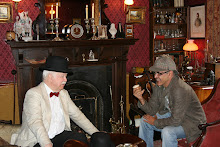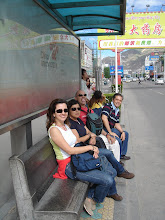Traveling side by side with Solange, in the plane to S. Nicolau, Secundino was hit by the singular beauty of Solange, which complemented in perfection her sweet voice. Dark, blond and with green eyes, she couldn´t hide their origins, which certainly would come from the incredible Duque of Montrond (a french noble that settled in the island in XVI Century), who melted their genes with aficans giving raise to an incredible and unique beauty in the whole world. Within the half an hour that takes the plane from Sal to S. Nicolau, Solange told him how she was born and lived in S. Vicente (also known as the Music Island, which seemed to mark her own music soul) until, pushed by a romantic impulse, she had decided to go after her origins and settle in Chã das Caldeiras, living upon the wine (also introduced by the Duque) and guiding expditions to the Volcano, allowing herself to live in complete freedom of attitudes and feelings.
On his turn, Secundino as shared his doubts about the invitation he had received to be a lecture in Lisbon University and was about to go when they first met in Sal. Truly, it was a good offer to his life, but he couldn´t avoid thinking on the lack of joy he always have seen (when studying in Lisbon) in the cape-verdian fellows living there that seem to steal their african essence. More than that, he could´t believe in the Europe that claiming to bring civilization to Cape Verde, had made them slaves to America and S. Tomé (incredibly supported by the church), trown them to concentration camps in Tarrafal, taking their health and sucking their lifes. He couldn´t feel hate, because his heart was not made for that, but could hardly believe in those rotten elites, which when pushed back to their own countries, were now sucking their own people. Good Future, Bad Life.
In that same night, they were taken to remember the odissey of the slaves forced to work in S. Tomé, imortalized by the words of Armando Zeferino Soares, in that most well known music representative of the island - Sodade. Unforgettable night for both, listening to that music sung by Tito Paris (firstly) and followed by Cesária Évora & Bonga, in the most famous cafe of culture of the island, in the central garden. They had also been touched by Mayra Andrade (Regasu), which put their hearts on fire. Later, in the hotel (Pensão Santo António) of a common friend, Sr. Manuel, who had given them the best room with view to the central plaza, they have loved each other until exhaustion and felt asleep singing together Sodade. The next days were a sucession of travelling around and making love, more and more intensively, melting their bodies and souls, leading Secundino to definitively change his life path. Solange had crossed his way, wakening him up to another type of love, besides the one he had inherited by his own family history ( the history of Tito & Maria told in Santiago episode). With no question, he would embrace a life with Solange, staying in Cape Verde. In peace, in harmony, with joy, flirting with life.
ISLANDS OF HOPE - Love to Love you from nunocruz on Vimeo.
Sentado ao lado de Solange, no avião para S. Nicolau, Secundino embasbacara-se com a sua beleza que complementava na perfeição a sua voz. Mulata, loira e de olho verde não enganava as suas origens que certamente remontariam ao incrivel Duque de Montrond (cidadão francês que se radicara na ilha do Fogo, em Chã das Caldeiras, no Séc. XVI), que misturara os seus genes com os genes africanos, gerando uma beleza impar na história do mundo. Na meia hora de voo que medeia entre o Sal e S. Nicolau, Solange contara-lhe que nascera em S. Vicente (também conhecida como a Ilha da Música, como que marcando o designio da sua voz), filha de mãe do Fogo e pai de S. Nicolau, e aí vivera até à idade de zarpar de casa, quando decidira num impeto romantico ir atrás das origens e instalar-se definitivamente em Chã das Caldeiras, vivendo da cultura da vinha (igualmente introduzida pelo Duque) do famoso vinho do Fogo, o Manecom, e como guia de expedições ao Vulcão. permtindo-se assim a uma liberdade plena nas atitudes e nos sentimentos.
Secundino contara-lhe que recebera um convite para leccionar na Universidade de Lisboa onde estudara, mercê da sagacidade e inteligência demonstrada, ao qual acedeu, embora sentindo alguma angustia que lhe causava hesitação. Na verdade, a oferta era boa, mas não gostara muito da vida sofrida que observara nos seus conterrâneos ali emigrados, da falta de côr, de alegria, de vivacidade que lhes roubava a essencia africana. Bom futuro, mas má vida. Reconhecia as possibilidades que a europa lhe oferecia, mas não deixava de pensar que a mesma europa, a coberto de levar a civilização ao seu país natal, escravizara o povo, apoderara-se-lhe da riqueza e muitas vezes lhes sugara a vida. Lembrava histórias dos seus antepassados enrolados no trafico de escravos para a América e para S. Tomé (que incrivelmente se estendeu até ao Seculo XX com o beneplacito da igreja), das vidas de servidão, da prisão do Tarrafal. Ele não sentia ódio, que isso não estava na sua maneira de ser, mas acreditava pouco nessas elites podres, que agora empurradas de volta para o seu canto, começavam a escravizar o seu próprio povo.
Nessa mesma noite, recordaram a odisseia dos conterrâneos forçados ao trabalho escravo em S. Tomé imortalizada através das palavras de Armando Zeferino Soares naquela que é a canção que mais imortaliza a ilha - Sodade. Noite memoravel ouvindo as palavras cantadas por Tito Paris (primeiro) e Cesária Évora & Bonga (depois) no café da praça central, ponto alto de convivio e de cultura da ilha. Ouviriam ainda a novel Mayra Andrade (Regasu) que acabou por lhes aquecer definitivamente os corações. Mais tarde, já na Pensão Pensão Santo António, do Sr. Manuel, amigo de ambos que num sorriso cumplice lhes arranjara o melhor quarto da pensão virado para a praça principal, amaram-se até à exaustão, até que ambos adormeceram entoando em unissono (ele também tinha a musica dentro de si) Sodade. Seguiram-se dias de passeio, de amor cada vez mais intenso à medida que o sexo se entranhava pelo corpo dentro e se mesclava com um amor mais profundo, levando definitivamente Secundino a inverter as agulhas da vida. Solange surgira-lhe no caminho, despertando-lhe um outro amor para além daquele que adquirira por herança da história deTito & Maria (ver episódio de Santiago). aliviando-o da angustia na escolha do partir ou do ficar. Definitivamente, ficaria em Cabo Verde, juntando a sua vida com a dela. Em paz, em harmonia, em alegria, flirtando com a vida.
.jpg)




